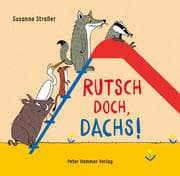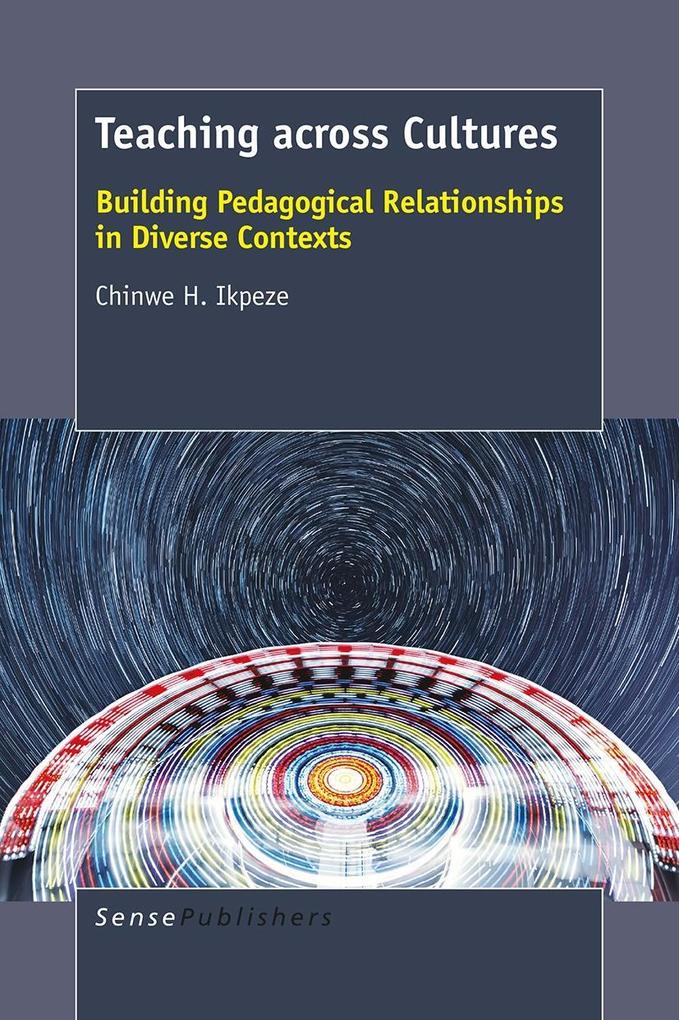Teaching across Cultures: Building Pedagogical Relationships in Diverse Contexts captures the tensions, complexities as well as the transformational potentials of teaching across multiple cultural contexts. The book evolved from cumulative self-studies that examined one teacher educator's teaching practice, the cultural impact on this practice, and how she facilitated transformative teaching and learning. While every act of teaching occurs across cultures such as institutional culture, invisible cultures, classroom cultures, among others, educators who teach as cultural outsiders have to navigate the tensions, complexities and contradictory realities of cross-cultural teaching. The tensions can be reduced or managed through responsive pedagogy, relationship building and teaching in the third space. These transformational approaches not only help to identify and close the perpetual gaps in teaching and learning but also position effective teaching within a pedagogical common ground that values student voices, facilitates pedagogical flexibility and uses diversity as a teaching tool. In a world of ubiquitous and interactive learning environments, both the physical and virtual spaces play a vital role in teaching and teacher-student relationships. The book points to the necessity of teacher educators' learning through diverse professional networks but more importantly through self-study. It is only through this introspective examination of one's teaching and students' learning as well as taking an ontological attitude to teaching that educators can achieve success in diverse contexts.
Inhaltsverzeichnis
Acknowledgments;
Introduction;
Teaching as a Cultural Artifact;
Introduction;
Understanding Culture;
Culture and Teaching;
Perspectives on Culture;
Cultural Assumptions and Practices;
Cultural Politics and Education;
Toward (Inter) Cultural Competence in Teacher Education;
Concluding Thoughts;
Chapter 2: Self-Study: Studying Self and Others;
Introduction;
Self-Study: Understanding Self and Others;
Uncovering My Assumptions;
Identifying Differences;
Research Questions;
Beliefs and Visions about Literacy Teacher Education;
Why Teacher Educators Engage in Self-Study;
Theoretical Framework;
Minding the Gaps in Teaching and Learning;
Concluding Thoughts;
Data Collection and Analysis;
Introduction;
Context of the Study;
Characteristics of Self-Study Research Methods and Its Application to Current Study;
Data Analysis;
Conclusion;
Tensions in Teaching across Cultures;
Introduction;
Understanding Tensions;
Institutional Culture;
The Entitlement Culture;
The Digital Culture;
Invisible Cultures;
Classroom Cultures;
Tensions across Situations &
Differences;
Relational Tensions;
Concluding Thoughts;
Toward Responsive Pedagogy;
Introduction;
Understanding Culturally Responsive Teaching;
Characteristics of Culturally Responsive Teachers;
Culturally Responsive Pedagogy in Teacher Education;
Approaches to Culturally Responsive Pedagogy in Teacher Education;
Rethinking Culturally Responsive Teaching;
Toward Responsive Pedagogy in Teacher Education;
Identifying the Gaps in Teaching and Learning;
Closing the Gaps in Teaching and Learning;
Responding to the Digital Culture through Technology Integration;
Concluding Thoughts;
Building Relationships in Physical and Virtual Spaces;
Introduction;
Teaching as a Relational Process: Dimensions of Relationships;
Building Relationship with Prospective Teachers;
Utilizing Student Reflections;
Making My Personal Life Visible;
Students' Perceptions and Relationships;
Individual Conferencing;
Modeling Best Practice;
Maintaining Academic Rigor;
Negotiating Authority;
The Student and Peer Context of Relationship Building;
Unfriendly, Difficult, or Disruptive Students;
Strategies for Dealing with Hard-to-Relate to and Difficult Students;
Small Group Collaboration;
Building Relationship in Virtual Spaces;
Blogging as a Pedagogical Tool;
Meet the Academic Blogger: The Case of Jackie;
Other Individualized Blog Conversations;
E-mails, Gratitude, and Teacher-Student Relationship;
Concluding Thoughts;
Teaching in the Third Space;
Introduction;
Theoretical Perspectives on Third Space;
Social and Spatial Production of Space;
Third Space, Globalization, and Teacher Education;
Third Space and Teacher Education Practices;
Facilitating Prospective Teachers' Learning in the Third Space;
Concluding Thoughts;
Social and Professional Networks;
Introduction;
Professional Socialization;
Professional Organizations and Teacher Educator Development;
A Day at the Literacy Research Association Conference;
Special Interest Groups and the Professional Development of Educators;
The Impact of Other Professional Associations;
Concluding Thoughts;
Teaching across Cultures: Perspectives and Implications;
Lessons Learned from Cumulative Self-Studies;
Teaching across Cultures: Implications;
Concluding Thoughts;
References;
Index.












